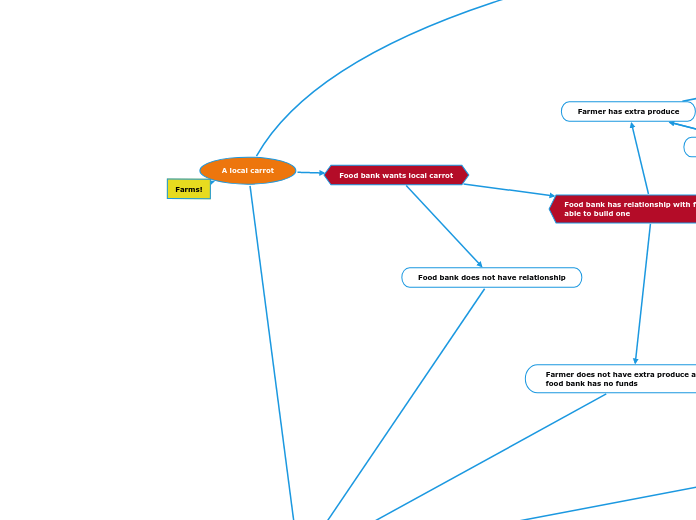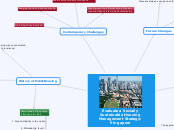Solid Ground
South King County Food Coalition
Food safety considerations
HAACAP plan
FareStart
Musang
Farms!
Not enough cold storage
Donated elsewhere
Restaurant/meal prep org picks up
Restaurant/meal prep org staff decides how to prepare food
Curates CSA-style boxes for customers
Pickles or cans food for long-term storage
Cooks ready-to-eat meals
Pay-what-you can model
Given as free meals
Customer comes to restaurant/central location
Sold for profit
Delivered to restaurant
Composted
Packed immediately
Food bank organizes volunteers to come help pack boxes
Food bank has relationship with farmer or is able to build one
Farmer does not have extra produce and food bank has no funds
Food bank does not have relationship
Food bank or others can connect customers with farmer
Food is distributed to people
Grocery-style
More dignity
COVID risk
People come to pick up
Pre-set food boxes
Volunteer drivers or delivery network
Need transportation
Food Lifeline
Northwest Harvest
Smaller pantries
Delivered to homes
Prepared by people at home
Eaten
Delivered to central location
Food bank picks up
Farmer delivers
Food bank needs loading dock space
Insufficient: waiting period
Risk of food spoiling
Additional resources required from food bank or farmer to store
Sufficient: move forward
Carrot needs cold storage
Food bank has cold storage: Carrot packed when needed
Insufficient packing area
Sufficient packing area space
Food bank needs to identify potential customers
Food bank has evaluation metrics and needs to collect information
Fewer customers served
Food bank has unrestricted funds and customers self-identify
Food bank has funds to purchase carrot
From donations
Profit from some paid services (if any)
External funding (philanthropy? subsidy?)
Food bank has volunteer network
Farmer has extra produce
Farmer has time to harvest extra for donation
Gleaners come to harvest extra produce
More of population given opportunity to experience farming/ecology
Carrot is donated to food bank
Carrot sold to food bank
Carrot needs to be transported from farm to food bank
No existing delivery route
Food bank has trucks, drivers, time
Food bank fits into existing farmer delivery route
Farmer has time and truck space
Restaurant prepares meal
Customer picks up
Restaurant repacks into curated box
Volunteer picks up and delivers to neighborhood location
Person gets box and takes home
Prepares food
Eat
Local carrot
Farm delivers to food bank
Solid ground delivers to restaurant
Farmer delivers to restaurant
Restaurant holds food
Food bank does not have funds to buy produce
Food bank has funds to buy produce
Food bank is unaware of local food quality
Food bank is aware of quality of local produce
Food bank does not have relationships with local farmer
Food bank has relationships with local farmer
Food bank and farmer agree on price
Staff time
Kitchen space
Food safety certifications
Knowledge of model
Willingness for risk
Community spirit
Involved community
Customers with money
Advertising/reputation
Excess money/grants
Method of identifying recipients
Cooking knowledge
Kitchen equipment
Energy costs
Time
Drivers
Refrigerated vehicles
Other holding location
Drivers
Vehicles
Volunteer/staff time
Infrastructure investment
Logistics management
Staff/volunteer time
Boxes
Waste management system
Space
Infrastructure investment
Logistics management
Energy costs
Forethought/planning
Infrastructure investment
Logistics management
Shared infrastrucutre
Funds from food bank
Awareness of quality
Relationships
Excess from farmer
Gleaners harvest
Relationships
A local carrot
Food bank wants local carrot
Farmer offers CSA, growing a variety of crops
Farmer seeks to connect to customers
Farmer has time to advertise and connect with customers
Farmer needs boxes to be packed
Farmer has time to pack boxes
Sold via other methods









